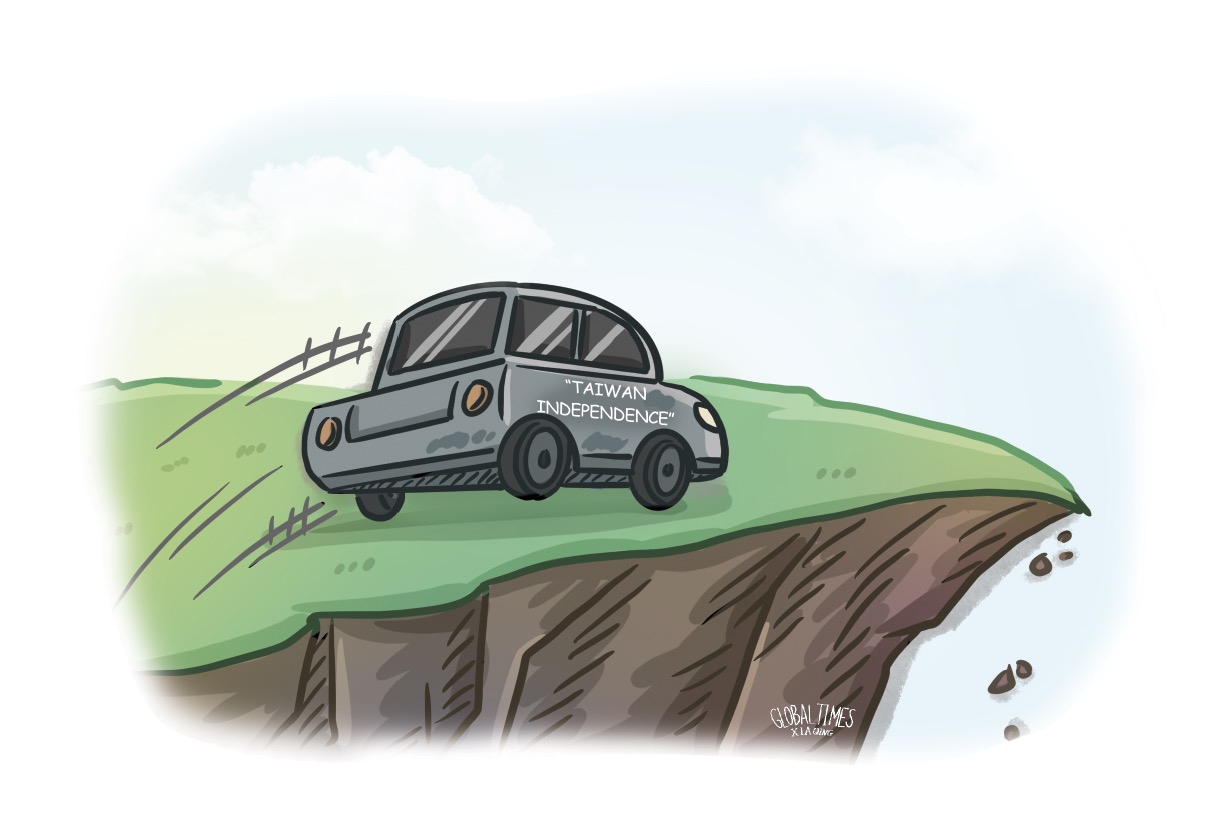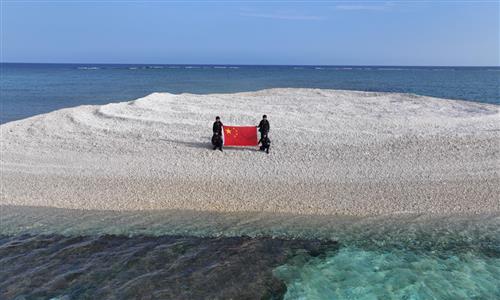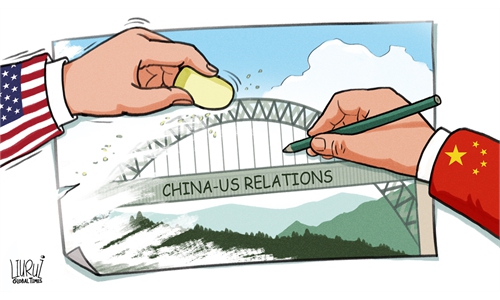
Illustration: Xia Qing/GT
South Africa's Department of International Relations and Cooperation (DIRCO) has reclassified the "Taipei Commercial Office" under "International organisations represented in South Africa" on its official website, removing the previously listed address in Pretoria and the representative's name, as well as updating the contact information to reflect Johannesburg, according to media reports.
And the so-called Taiwan's "diplomatic allies" showed up at the fourth ministerial meeting of the China-CELAC (the Community of Latin American and Caribbean States) Forum in Beijing. The close occurrence of these two events clearly sends a signal: The DPP authorities are facing a crisis in their so-called"international space."
The South African government has been demanding that the Taiwan region's office in the country be relocated from the administrative capital, Pretoria to Johannesburg, but the DPP has consistently attempted to refuse. After the South African government resorted to unilaterally altering the name and deleting the address and title of the representative, a Taiwan media outlet claimed, "it means the Taipei Liaison Office exists only in reality, but not in name anymore." The Taiwan media has seen the surface, but fail to grasp the core truth - the "Taipei Liaison Office" in South Africa is completely gone, in name and in reality.
All countries that have established diplomatic relations with China abide by international law and the one-China principle and undertake not to establish any official relations with the island of Taiwan. The scope of interactions between China's diplomatic partners and the Taiwan island authorities is limited to the non-official sphere. Countries with diplomatic ties with China shall not establish any form of official relations or set up official institutions with the Taiwan authorities.
South Africa is now further adhering to international law and implementing the one-China principle more thoroughly by renaming and relocating the "Taipei Liaison Office." It redefined the office as a "commercial" one, and raised the demand to relocate it out of the capital. Its domain name was also unilaterally changed by South Africa from @mofa.gov.tw to @telkomsa.net, a South African telecom company, signaling to the DPP authorities that the "Taipei Liaison Office" no longer exists.
Another event that has sparked heated discussions across Taiwan island is the appearance of representatives from Haiti and Saint Lucia, two so-called Taiwan's "diplomatic allies," at the fourth ministerial meeting of the China-CELAC (the Community of Latin American and Caribbean States) Forum, held in Beijing last week. As Chen Binhua, spokesperson for the State Council Taiwan Affairs Office, emphasized, the China-CELAC Forum is an important platform for carrying out mutually beneficial collaboration between China and Latin American and Caribbean nations. China welcomes and supports the active participation of CELAC members in regional cooperation frameworks, and upholding the one-China principle is a norm governing international relations and prevailing consensus of international community.
At present, the Chinese mainland is making continuous progress in development, with its international status gradually rising.
If DPP authorities continue to stir up troubles over the Taiwan question, they will only be binding themselves tighter in a cocoon. The moves by South Africa and CELAC countries show the hollowness of its so-called "international space."
An increasing number of countries have demonstrated through practical actions that maintaining non-official relations with the Taiwan region must strictly adhere to the one-China principle.
The article is compiled by Global Times reporter based on an interview with Zheng Jian, a professor at the Taiwan Research Institute of Xiamen University. opinion@globaltimes.com.cn



